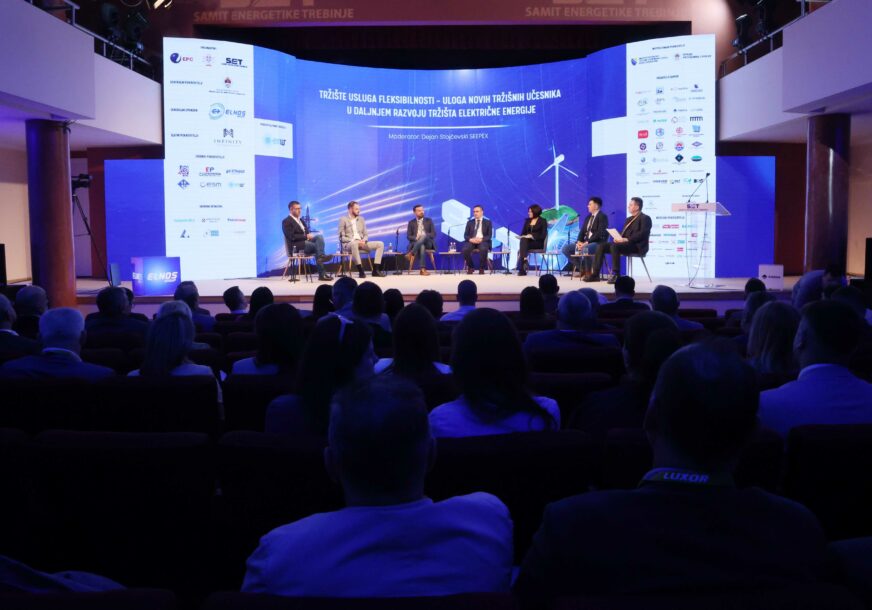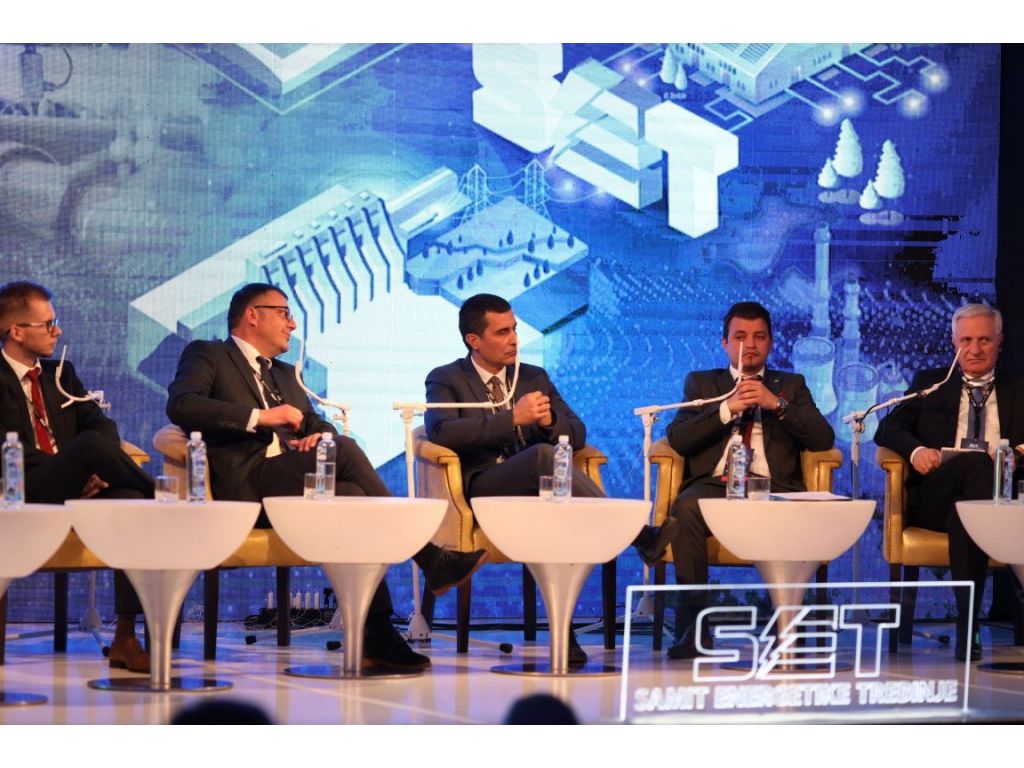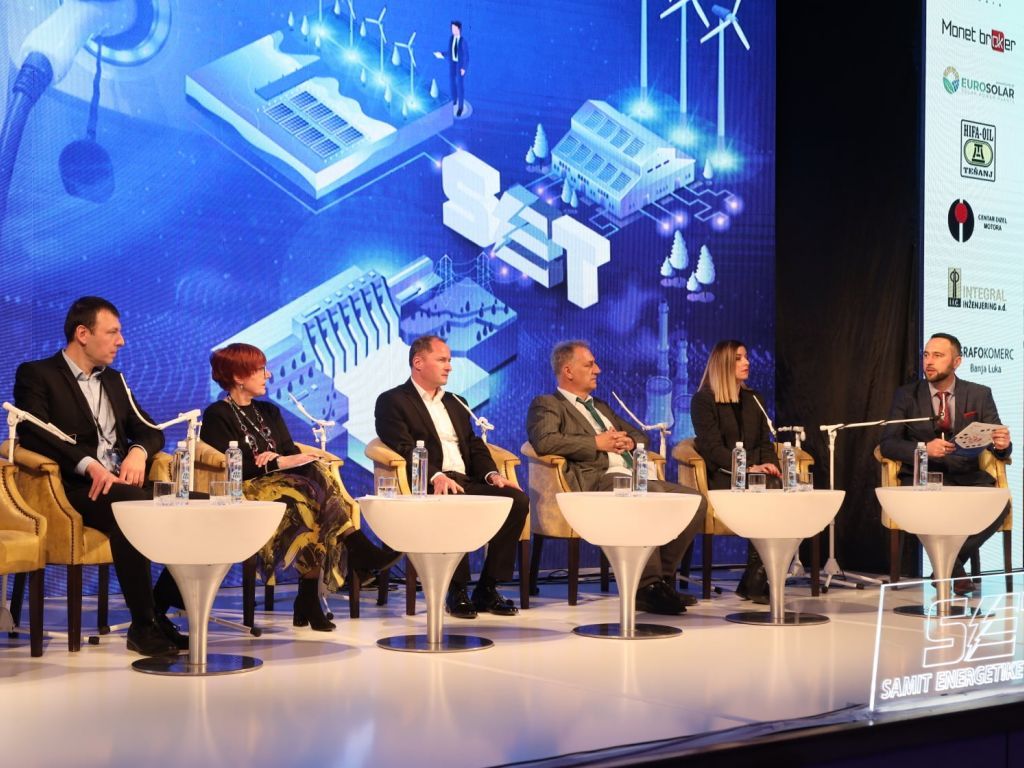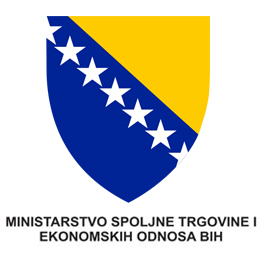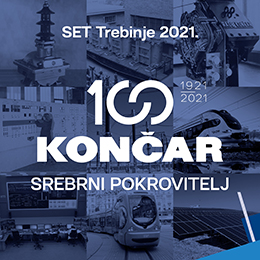Stasa Kosarac, Minister of Foreign Trade and Economic Relations of BiH – There Should Be Laws on RES on Entities’ Levels by the End of 2021
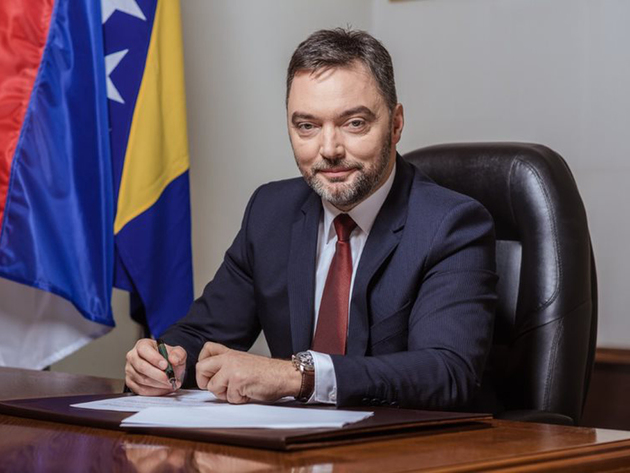
All three power companies in Bosnia and Herzegovina have very ambitious plans when it comes to the construction of wind farms and solar power plants, which is also defined by the Framework Energy Strategy of BiH until 2035, Stata Kosarac, the minister of foreign trade and economic relations of BiH, says in his interview for eKapija.
We talked to him about the upcoming Trebinje Energy Summit, the plans of BiH for the development of renewable energy sources (RES) projects, but also about which regional energy projects are the most important at the moment.
Kosarac once again emphasized that BiH was a part of the large process of decarbonization of the energy sector and that the process should be finalized in 2050.
This year’s Trebinje Energy Summit, second in a row, is held under the slogan “Hybrid Energy Future”. What kind of an energy future does BiH want for itself? What are the goals that are set for the next decade?
– I primarily want to emphasize that the energy sector falls within the primary constitutional responsibility of Republika Srpska and the Federation of BiH and that the Ministry of Foreign Trade and Economic Relations of BiH has a coordinating role. The policy I carry out as the head of the ministry fully complies with the constitutional competences and there are no deviations in that sense.
With the ratification of the Energy Community Treaty and the Paris Agreement, as well as the signing of the Sofia Declaration on the Western Balkans Green Agenda, BiH has expressed a strong orientation toward harmonizing with the ambitious EU goals when it comes to the energy transition and climate neutrality. Based on the recommendation of the Energy Community and the EU, our obligation is to build an integrated energy and climate plan for BiH for the 2021-2030 period. The setting of goals within the integrated approach to energy and climate for the period until in 2030 is currently in progress, as is the preparation of the NECP of BiH, as well as the energy and climate plans for the entities. To the end of planning the NECP process, an energy model for BiH and complementary entity models have been developed.
The first preliminary draft of the NECP of BiH has also been sent to the Energy Community Secretariat. The process of consultations with the competent partner institutions is currently in progress, with a plan for completion and adoption by the end of 2021. The Government of Republic Srpska and the House of Representatives of the Federal Parliament have given full support for the preparation of the NECP of BiH and this document will determine the development of the energy sector in BiH in the next ten years, with projections of development until 2050, when we are looking at a full decarbonization of the energy sector.
I want to emphasize that the program of this year’s Trebinje Energy Summit matches the activities carried out by the Ministry of Foreign Trade and Economic Relations of BiH, and I see the slogan of the summit as a confirmation of our determination to follow the energy trends, where one of the priorities is certainly the development of hybrid energy systems, which entail energy solutions which combine two or more energy sources or energy storage systems, which is the future of energy in this country as well.
As you already know, the consumption of energy in the EU by 2035 should be higher by a third than what it is now, and we should also follow that trend. At the same time, abandoning the use of fossil fuels and increasing the share of renewable sources increasingly leads to imbalances in the production and consumption of electrical energy, which requires efficient solutions even today.
There is a huge potential for implementing energy efficient solutions in the industry, construction and transport. The trends of decentralization, digitization and electrification are also the potential for the revolution of the electrical energy system and the energy system as a whole and we have chosen to follow that trend.
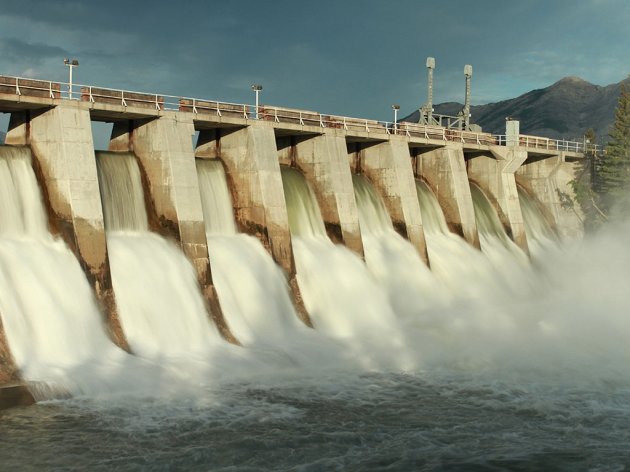
(Foto: Sky Light Pictures/shutterstock.com)
An increasing share of RES in the production of electrical and energy and their impact on the electrical energy system set greater demands for an accelerated development of the system itself and an accelerated establishment of an organized market. It is necessary to follow the trend of electrification of many areas of energy consumption in which fossil fuels have been mostly used. The best example is transport, where the transition from motor vehicles with internal combustion to electric vehicles is accelerating. Regarding this, I want to emphasize that the ministry I am running is preparing a range of exemptions to the end of developing this sector.
Finally, I want to emphasize the importance of the development of the so-called citizen energy in the upcoming period. It is necessary and it increases the capacity of the RES infrastructure on a local level and boosts the support and helps the participation in the transition process. Citizen energy is an opportunity which opens access to funds urgently needed for the energy transition. It brings common social-economic benefits on a local level and keeps the added value within the local communities.
The production of energy from RES is increasingly a development opportunity for citizens, agriculturists, cooperatives, small and medium enterprises, local self-governments, humanitarian associations and non-governmental organizations, together with traditional energy companies or instead of them. Decentralized programs enable individuals and communities to share the costs and benefits of RES and to recognize the possibilities of a better harmonization between the supply and the demand. Citizen energy from RES creates net local jobs and economic growth, which is an opportunity for all citizens in this country.
The construction of a gas pipeline network, wind and solar power plants – will these be the dominant investments in the upcoming years in the energy sector of BiH?
– When it comes to the construction of the gas infrastructure, wind farms and solar power plants, I believe that Republika Srpska and the Federation of BiH have very realistic and ambitious plans, whose realization is expected in the upcoming period.
The plan of Republika Srpska is to build the main gas pipeline Nova Istocna Interkonekcija Republika Srpska/BiH i Srbija (New East Interconnection Republika Srpska/BiH and Serbia). In that context, I welcome the encouraging cooperation between Srbijagas and Gas RES. The Development Strategy of Republika Srpska until 2025 also envisages gasification of 325 kilometers. The intention is for Republika Srpska to connect to the TurkStream gas pipeline, which Serbia has already built in its territory. The plan is for it to develop along the route of the highway from Kuzmin to Banjaluka, that is, Novi Grad..
I recently discussed the construction of this gas pipeline with the minister of transport and communications of Republika Srpska, Nedeljko Coric, and we agreed that the construction of a branch of the TurkStream gas pipeline is a capital infrastructure project in Republika Srpska, which will contribute to a quicker economic development, upgrade of standards and quality of life, as well as environmental protection. The implementation of the TurkStream branch is the result of years of efforts and hard work of the institutions of Republika Srpska. The use of gas, as a more economical energy source, will contribute to the development of economic activities, but also environmental protection. Institutions at the level of BiH need to recognize and adequately support the activities of Republika Srpska toward the realization of an important investment, which will provide a new energy source to the populace and the economy.
I believe that is extremely important to secure more interconnections, so that the gas would be available to as many citizens and business entities in the entire BiH. I would also like to highlight the construction of the Ionian-Adriatic Gas Pipeline (IAP), which is a cross-border project. It will provide BiH with access to gas from other directions for the purpose of meeting the future demand, as well as the security of the supply, and it is especially interesting because it might provide BiH with access to the international LNG market on the Krk island.
When it comes to the Federation of BiH, the biggest priority is to connect BiH to the IAP and to build the gas pipeline called “South Interconnection of BiH and the Republic of Croatia” on the Zagvozd-Posusje-Novi Travnik/Travnik route, with a branch toward Mostar, since it is based on the concept of the diversification of the sources and routes for the purpose of the security of natural gas supply.
I would also like to emphasize the importance of the execution of the project of the hydro power plant on the upper Drina, more concretely, the Hydro Power Plant Buk Bijela. It is a project of remarkable importance, which can also contribute to the further economic growth of Serbia, Republika Srpska and BiH. I am convinced that all the problems and delays that the project has experienced in BiH will be removed in the upcoming period.
Another strategic interest when it comes to the development of an interconnection toward Serbia is also the question of the development of the network in the Ljubovija-Srebrenica area, where we need to create the conditions for a better and more secure supply of that area with a 110-kV power line.
All three power companies in BiH have very ambitious plans when it comes to the construction of wind farms and solar power plans, as defined by the Framework Energy Strategy of BiH until 2035, as well as the entities’ strategic documents, and within said activities, the ministry provides full support to the construction of these facilities.
How will things go when it comes to decarbonization? What are the plans for thermal power plants?
– BiH has been in the process of transition of the energy sector for a long time. Energy transition is the basis for the decarbonization of the economy and the society, with the aim of stabilization of the concentration of greenhouse gases in the atmosphere to the level which prevents a hazardous effect of the anthropogenic influences on the climate system. The adoption of the Paris Agreement, which came into effect in 2016, was a turning point in the activities on an international level when it comes to climate change. The implementation of this agreement will set the directions of development of the energy sector in BiH.
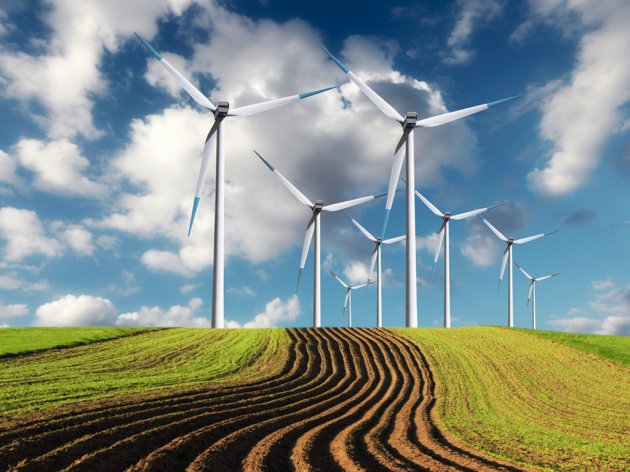
Within the process of the transition of the energy sector, BiH is part of a complex process related to the preparation of the Integrated Energy and Climate Plans for 2021-2030 (NECP), which is carried out within the Energy Community. These plans entail a ten-year period which will provide the direction of the development of the energy sector and be an integrated approach between energy and climate policies, taking into account the energy transition as well. The multiple goals and obligations that BiH took upon itself, related to the field of environment and climate, energy efficiency and RES, are thereby harmonized and unified.
In the case of BiH, a harmonization with the strategic documents adopted so far and plans in the fields of environment and climate, energy efficiency and RES are needed – the Framework Energy Strategy of BiH until 2035, the Strategy of Adaptation to Climate Change of Low-Emission Development for BiH, the Action Plan for the Use of Renewable Energy in BiH, actional plans for energy efficiency in BiH and the Report on the Intended Activities of Mitigating the Climate Change in BiH.
Regarding the future of thermal power plants, as we see, the abandoning of the use of fossil fuels and the increase of the share of RES is a global trend, where the EU is leading the way, and this is our international obligation, as confirmed through the signing of the Sofia Declaration, from which it follows that BiH needs to decarbonize by 2050. The Sofia Declaration determined us for the implementation of the ETS, that is, the transposition of the Emissions Trading System, as well as the implementation of the CO2 fee. These are obligations that will further affect the price of electrical energy from fossil fuels, so we will carefully approach this issue together with the competent entity ministries of energy and environment, because these solutions will determine the life cycle of thermal power plants and coal mines in BiH.
We are currently working with the World Bank and the competent entity ministries on preparing the Road Map for the transitions of the regions rich with coal and the preparation of this Road Map will point to the direction we should go down. Furthermore, it should be emphasized that, of the member-states of the Energy Community, BiH has entered as a priority along with Ukraine, where we will have great benefits through this project of the World Bank..
Which exemptions and regulations are being prepared in order to attract foreign investors to projects of green energy? How do things stand when it comes to the regulations in the individual entities?
– With the signing of the Sofia Declaration on the Western Balkans Green Agenda, BiH opted to follow the EU and contribute to the achievement of the goal of having Europe become the first climate-neutral continent until 2050.
In BiH and other countries of Southeast Europe, the production of electrical energy from RES is currently incited through feed-in tariffs (FIT), set by the competent authorities in Republika Srpska and the Federation of BiH. However, the current system of incentives is increasingly criticized for the costs it imposes on end-users. It has therefore been concluded that a reform of the existing system of incentives for the use of RES is needed. The proposed reform aims to reduce the costs of these incentives and facilitate the development of RES projects in the future and to create a more liberal environment in the energy sector.
To that end, the Ministry of Foreign Trade and Economic Relations, together with the competent ministries from the entities, along with the technical assistance of GIZ, was active in the preparation of the proposition of new legal solutions for both entities, which are to be adopted by Republika Srpska and the Federation of BiH. We should have new laws on RES adopted by the end of the year, proscribing a modern concept of the reform of the incentives system, whose adoption will create the foundations for an accelerated development of the RES sector in Republika Srpska and the Federation of BiH.
How do you see the current energy market in BiH and the region? What should be improved in the liberalization process?
– The six countries of the Western Balkans (WB6) obliged in 2015 in Vienna to implement legal and regulatory measures necessary for the establishment of market-based electricity trading. They entail the development of a “Spot” market and the regional connecting of the markets of various countries, the regional balancing of electrical energy systems and a regional approach to the distribution of available cross-border transfer capacities. Said measures involve the removal of the existing legal and regulatory barriers, among other things, through a full implementation of the Third Energy Package and additional reform measures.
The signed Memorandum of Understanding between representatives of the WB6 countries on the development of the regional market of electrical energy is the foundation for the further development and integration of the regional market. The central question is how to secure the continuation of the reforms in each country and the implementation of the measures that will lead to the establishment of a regional market and how to enable the integration of the market of southeast Europe into the pan-European market of electrical energy.
The Ministry of Foreign Trade and Economic Relations of BiH has adopted the Road Map that will presents the measures and activities that need to be executed to achieve the goals set by the Vienna Agreement and the Memorandum of Understanding. The Road Map contains the goals and measures defined in said documents, whereas the activities that need to be carried out are prepared so as to reflect the real situation in the field of reform of the electrical energy sector. It is important to emphasize that the activities toward the reaching of the goals of measures and activities related to the regional issues in the Road Map are realized in coordination with the Energy Community Sector, whereas the implementation of the cross-measures is realized by the competent local actors. Within the activities defined through the Road Map, the Energy Community Secretariat has provided technical assistance to BiH within which the Study for establishing an organized day-ahead and intraday electrical energy market within the harmonization of the energy legislative with the EU acquis has been prepared.
Also, the Opinion of the European Commission on the Request of BiH for EU Membership emphasizes the obligation of the establishment of an organized electrical energy market. The office of the World Bank provides technical assistance to BiH to the end of analyzing, preparing the plan and implementing the approach to the strategy of securing the liquidity of the day-ahead market. Through this activity, the options of deregulation of the production will be proposed, so that a part of the electrical energy would be offered and bought in the day-ahead market.
Furthermore, in line with the Decision of the Ministerial Council of the Energy Community on the Implementation of the Directives from the Third Energy Package, the power companies in BiH are obliged to separate the activities of distributions and supply of electrical energy into legally distinct business entities. According to the information available to us, the process of separation has not been finished in the Federation of BiH, whereas, in Republika Srpska, there are active efforts toward this goal.
Finally, I want to emphasize that the basis for the development of the market of electrical energy and the market of gas is the adoption of the law on the regulator of electrical energy and natural gas, the transfer and the electrical energy market. Our task in the next period is to adopt this law in line with our constitutional competences and in compliance with the fact that the energy sector lies within the primary competence of the entities, and the Ministry of Foreign Trade and Economic Relations of B&H has a coordinating role. Said law will enable the establishment of an organized market and the connection with the regional market in line with our obligations defined in the Energy Community Treaty..
Which regional energy projects will be especially important for BiH in the upcoming years?
– When it comes to regional energy projects, I primarily see gas projects here, that is, interconnections with the Republic of Serbia and the Republic of Croatia, as well as the 400-kV interconnection Bajina Basta-Visegrad-Pljevlja. Of course, there are also regional projects related to the utilization of the hydro potentials on the Drina river.
To the end of the implementation of regional projects, I want to emphasize the necessity of the harmonization of the local legislative when it comes to the EU rules on the issuing of permits for the construction of energy infrastructure facilities, which will facilitate the implementation of such projects, as well as access to financial institutions.
The Energy Summit SET 2021 is organized on May 20-21 by Elektroprivreda RS and the SET company, under the aegis of the Ministry of Foreign Trade and Economic Relations of B&H, the Government of RS and the Koncar company, with the general sponsorship by Elnos Group and support from Infinity Group and Dwelt.
The eKapija portal is the media sponsor of the Trebinje Energy Summit 2021.
Teodora Brnjos
Izvor: eKapija
© 2020 All rights reserved | SET 2021





